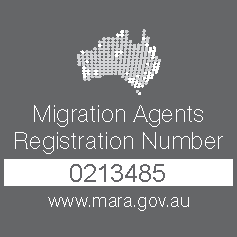The 457 visa which was abolished earlier this year was a popular route for
Indians heading to work Down Under. Of
the 90,000 holders of the 457 visas in Australia, 22% of them were held by
Indians.
Indians who had set their eyes on permanent residency will now find
it tougher to achieve this PR status. If they qualify from Australian
universities, they will still need to have had two years’ work experience in
that area of specialism to obtain a role. Labour testing means that the local
workforce will be given the first opportunity for a job vacancy.
The new TSS visa which replaces the 457 has two main streams. A short term stream that enables hiring of temporary expat skilled workers in occupations on the Short Term Skilled Occupation List (STSOL).. The duration of this visa is a maximum of two years, but can be extended up to four years if an international trade obligation applies.
The second stream is a medium-stream where expats can be hired for occupations included in the Medium and Long-term Strategic Skills List (MTSSL) and its duration is for up to four years. Managing director of our company Visa Solutions Australia Dan
Engles was recently approached by the Indian Times for his reaction to the new
TSS visa which has replaced the 457 and was happy to share his thoughts with reporter
Lubna Kably.
“Short term TSS visa holders are not eligible to
apply for permanent residence. The medium or long term TSS visa holder may
apply for permanent residence, after having held the TSS visa for a minimum
period of three years. But in my
opinion, unless your occupation is in demand, options for permanent residency
are restrictive. Hiring expats will also become more expensive.
Approved sponsored companies may have to contribute to a ‘Skilling Australia
Fund’ (SAF) and the bill incorporating this is currently being debated in the
Parliament. If passed it would mean that the sponsoring company may need to
contribute to the SAF. It could cost an
Australian company $1,200 per employee nomination for each year of the visa
tenure. It would mean, for example, a sponsoring
company employing a software engineer on a four-year visa would to pay a levy
of $4,800.”
MD of VSA – Dan Engles told the Indian Times
that the Department of Home Affairs was getting tough.
“The new rules are more stringent and are aimed
at paving the way for higher skilled, higher qualified individuals to
permanently migrate to Australia. We are already seeing a higher number of
refusals across all visa subclasses—not just work visas. Officials are adopting
a stricter approach over the past six months or so, visa applications are being
refused without prior warning or communication.”
If you’d like to find out more about the two new streams of the TSS
visa, speak to one of our experienced migration team members. Visa Solutions Australia
is one of the largest, most respected migration companies in Perth and we pride
ourselves on the level of service we offer.







